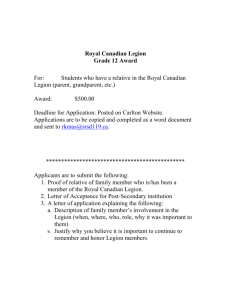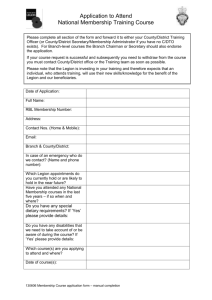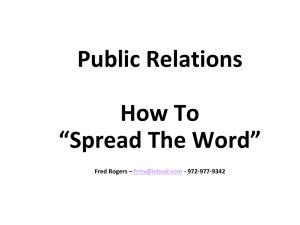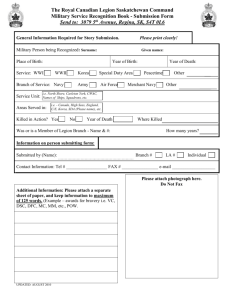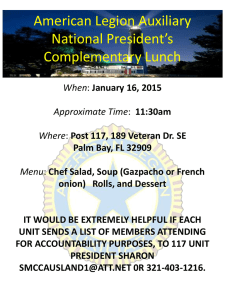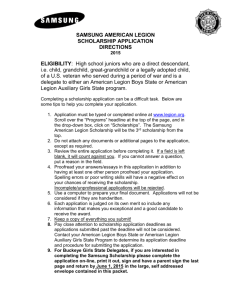Document
advertisement
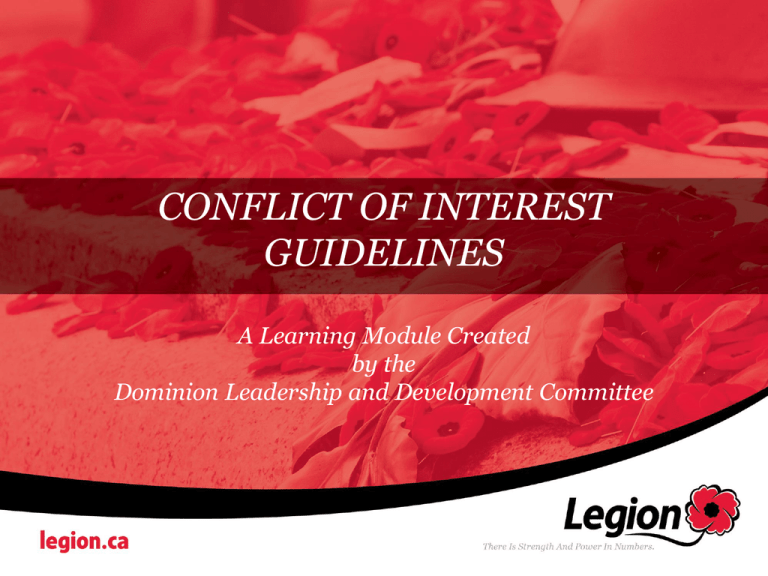
CONFLICT OF INTEREST GUIDELINES A Learning Module Created by the Dominion Leadership and Development Committee Overview For the purposes of this discussion, a conflict of interest shall be a conflict between the personal, professional or vocational interest of a member of the executive and/or another member and the interest of the Legion, in respect of any matter upon which the member of the executive and/or other member may be permitted or required to debate or participate in decision making. When does a conflict arise? Any member of the executive and /or member who has an interest in any business or financial arrangement or personal interest with (a family or friend member) a matter which is being discussed at any meeting shall remove him/herself immediately from the discussion and the vote upon the matter, and the event shall be recorded in the minutes. A conflict of interest arises when a board member's private interest supersedes or competes with his/her dedication to the interests of the Legion, This could arise from real, potential or apparent conflict and may be financial or otherwise for this purpose. Situations where a conflict exists a) A “Real Conflict of Interest” occurs when an executive and/or member exercises an official power or performs an official duty or function and at the same time knows that in the performance of a member's duty or function or in the exercise of power there is the opportunity to further a private interest. Situations where a conflict exists b) A “Potential Conflict of Interest” occurs when there exists some private interest that could influence the performance of a members’ duty or function or in the exercise of power provided that he or she has not yet exercised that duty or function. c) An “Apparent Conflict of Interest” exists when there is a reasonable apprehension which reasonably well-informed persons could properly have that a Real Conflict of Interest exists on the part of the member. Considerations for policy development Legion Branches developing a conflict of interest policy are urged to consider the following: 1. Have a good , clear and up to date conflict of interest policy definition. 2. Make sure all participants understand the conflict of interest policy and why it is necessary. 3. Foster a culture that is ready to recognize a conflict of interest when it happens and to deal with the conflict of interest in a non-accusatory way. Examples The Branch executive is hiring an individual who has a relative and a close friend on the executive committee. In this case the executive member related to the potential employee and the close friend must not be a part of the debate or vote on this issue. For the purposes of this definition relatives will include father, mother sibling, cousins or those related by marriage, A complaint has been properly lodged against a family member. The same above applies. Summary Conflicts of interest are hard to deal with; if a member finds them self in a position where they think there may be a conflict of interest they should declare the potential conflict and let the governing body decide if in fact it is considered a conflict of interest.



